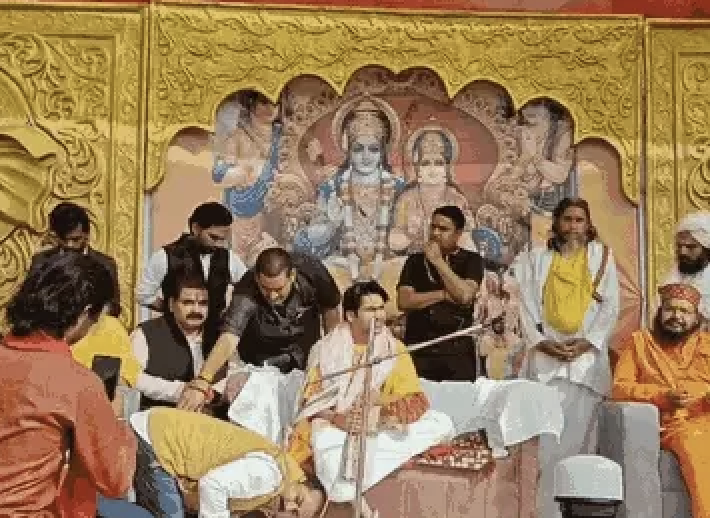
Bharatiya Janata Party and Rashtriya Swayamsevak Sangh leader Ram Madhav’s latest book, The New World: 21st Century Global Order and India, can be read on three levels. The first part tells the story of the world since the dawn of time in a relatively descriptive manner, so I will not refer to it much in this review. In the second part, devoted to India, Madhav presents his worldview in a very interesting way. He also expresses reservations about India’s chances of becoming a great nation and, implicitly, criticises government policies, while rehabilitating an important part of the Congress’s legacy – a first for a Sangh Parivar leader since 2014.
Hindu nationalism, its enemies and its new friends
Ram Madhav is now regarded as an organic intellectual of the Hindu nationalist movement, and this book provides insight into several facets of that movement. However, he never refers to its founding fathers (there is no mention of V.D. Savarkar) or its organisations. There is no mention of the RSS and its affiliates either. The aim here is to show that Hindutva is just one variant of a broader phenomenon that affects the whole world and which Madhav calls “national conservatism,” echoing the National Conservatism Conference in which he participated in 2024.
This book therefore contains key elements of this movement, starting with the idea that India is the source of many inventions that have enabled humanity to prosper: in ancient times (no date is specified), “led by the Hindus and the Greeks, a moral order began to take shape in the early centuries before the beginning of the Christian era” (p. xii).
The author adds, in an equally vague and peremptory manner: “Around the same time, the Hindus also came forward with their Vedas, Upanishads and other classical literature, leading to the evolution of a superior social order in the East” (p. xiii).
The result: “India was the largest economy in the world in the first millennium” (p. xiv). In fact, it was under the Mughals that India became one of the leaders of the world economy. But Ram Madhav rewrites history and, in line with Hindu nationalist dogma, claims that this golden age was followed by an era of decline due to the Mughals: “Colonization, first by the Mughals and other Central Asians, then by the British for over 800 years, had left the country pulverized and pauperized” (p. xiv).
This story was originally published in thewire.in. Read the full story here.






